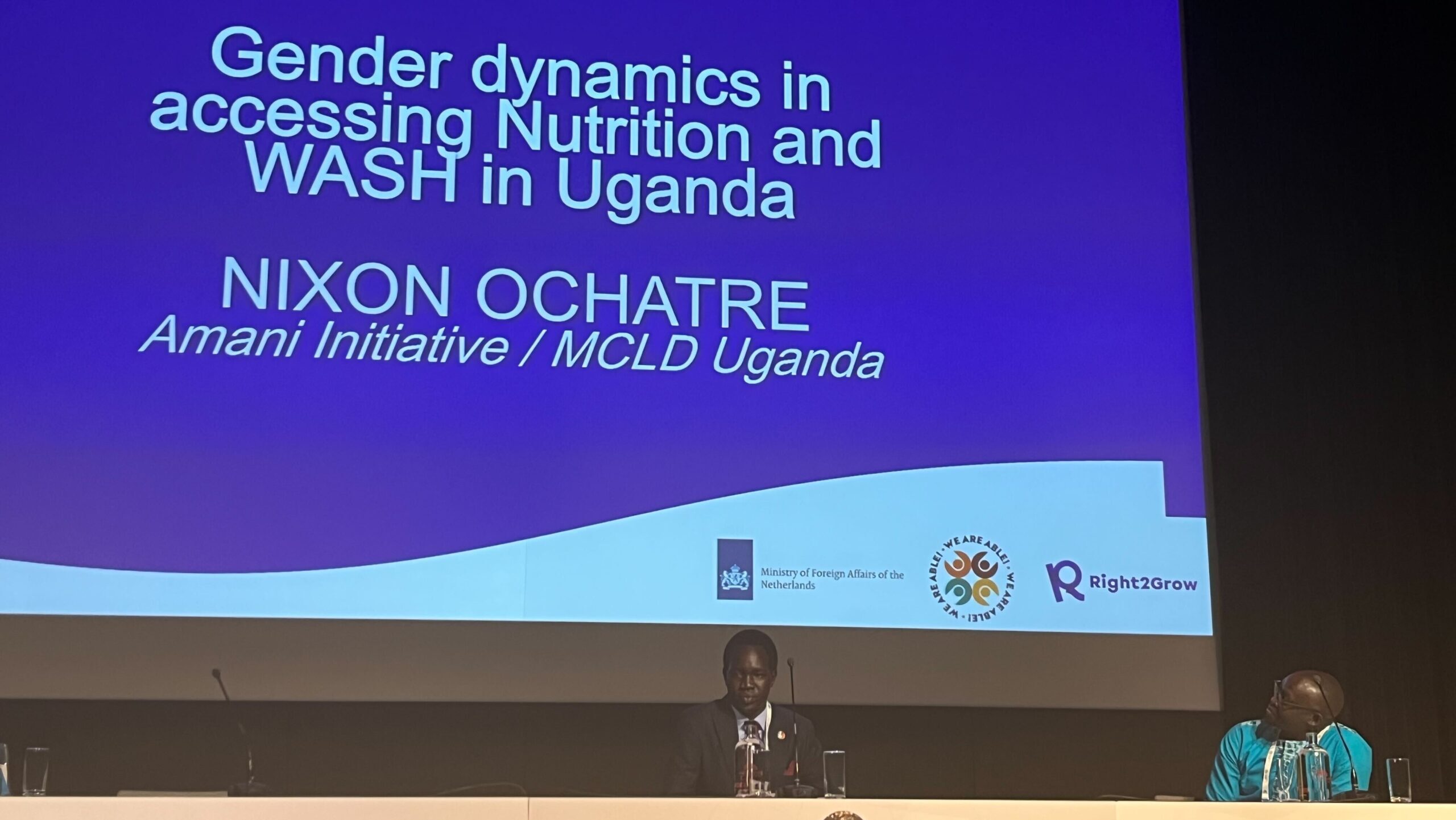A reflection piece by Nixon Ochatre, Amani Initiative and MCLD-Uganda
All photo credits to Right2Grow and The Hunger Project Netherlands.
As we closed the curtains on the 6th Micronutrient Global Conference, which took place in The Hague, Netherlands, from October 16th to 20th, 2023, under the theme “Nutrition for Resilience,” I was deeply grateful for the opportunity to attend this significant event. Not only was I privileged to participate in person, but I also had the honor of delivering a presentation on a topic that holds a special place in my heart and aligns with the core work of Amani Initiative and the Movement for Community-led Development Uganda Chapter.
My presentation revolved around “Pathways to Gender-Informed Nutrition and WASH Outcomes at the Community Level.” Made possible through the generous support of Right2Grow and the Netherlands Foreign Office under #PowerofVoices.
The conference was a dynamic gathering, featuring 677 poster presentations and hosting over 90 live sessions. The World Forum came alive with the presence of a diverse global audience, including academicians, representatives from donor agencies, government officials, UN agencies, civil society organizations, private sector entities, and numerous others. Despite our varied backgrounds and expertise, we converged with a shared purpose: addressing the critical issues of malnutrition and resilience enhancement.



Throughout the conference, several critical themes emerged, fueling engaging discussions and setting the stage for future action. These included the vital intersection of climate change and nutrition, the need for targeted advocacy efforts in areas such as financing, accountability, and policy, and the importance of data-driven insights to drive effective nutrition programming and advocacy. Discussions also spanned both under- soil and above-soil programming, emphasizing the roles of women, youth, resilient health systems, and technology adoption, among other remarkable topics.
Two critical issues remain as catalysts for further action in the realms of WASH and nutrition.
Firstly, the meaningful engagement of men in the quest for improved nutrition and resilience, particularly at the household level, is important. Breaking down traditional gender norms and encouraging men to actively participate in nutrition-related decision-making and caregiving is essential for holistic progress in a manner that is culturally contextualized but also leverages existing traditional best practices.
Secondly, centering the community as the driving force behind efforts is key. Empowering communities to take the lead in nurturing sustainable nutrition resilience for all is the path forward. This means promotion of local leadership, ensuring community involvement in decision-making, and tailoring interventions to meet specific community needs and contexts.
As my final call to action, we need to be intentional to; Empower, Enable, and Engage for a Healthier Future. By leveraging the critical role of communities in demanding and investing in basic social services, adopting good nutrition and WASH practices, and addressing gender barriers, we shall be in a position to sustainably change the negative narrative of poor nutrition and WASH outcomes in our communities. Let’s intentionally invest in local structure capacities and put communities at the center of development through empowerment, creating an enabling environment and meaningful engagement for sustainability.
Special appreciation once again to Right2Grow specifically the amazing friends from Hunger Project Uganda and Netherlands, Save the Children Netherlands, Max Foundation, World Vision Netherlands and the Movement for Community-led Development Uganda Chapter for the opportunity to represent community voices from Uganda.
#MFF2023 #N4R #MicronutrientGlobalConference #NutritionForResilience


